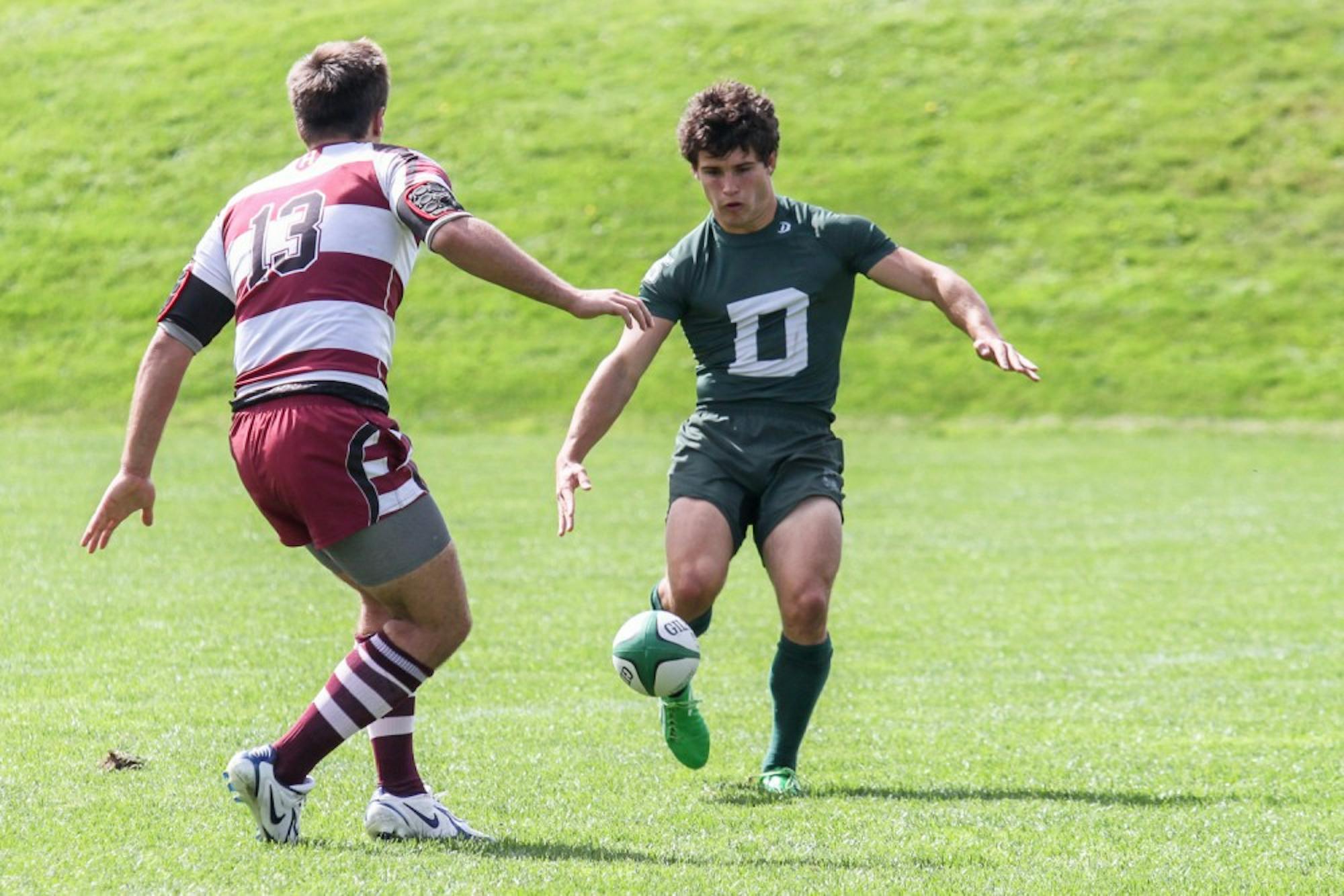The men’s Dartmouth rugby football club is no stranger to American sports bias. While rugby is a favorite across the globe, it has yet to gain widespread popularity in the U.S. Despite the long haul out to the rugby club house at Brophy Field and the sport’s lack of NCAA recognition, the DRFC has proven year after year that it is one of the nation’s best teams. This year, the team sent its fifth player, captain Madison Hughes ’15, to the Wellington Sevens with the U.S. National team.
Hughes was invited to train with the Eagles after moving up the ranks of the Dartmouth rugby team and playing on All-American teams. Though he didn’t start the first two games of six in Wellington, New Zealand, he still managed to be the fifth-highest scoring player in the tournament, with 33 points in total. Just 15 points came from tries, with the other 18 points coming from nine conversions across the tournament. This points to Hughes’s incredible ability to control his kicks, teammate Curtis Oberg ’16 said.
“He literally can kick the ball from any spot on the field,” Oberg said. “It really just points to his hard work. He has a tireless work ethic, and he’s always out there before and after practice working on kicking.”
Characterized by teammate Christopher Banks ’16 and coach Alex Magleby ’00 as an intelligent player who leads by example with incredible speed, skill and agility, Hughes is one in a long line of Dartmouth representatives on the national team.
Joe Killefer ’06, Al Dekin ’87 and Kevin Whitcher ’99 have also represented Dartmouth on the U.S. National team.
The Big Green has been competing internationally as a team since its first overseas matches in Bermuda in 1951. Since then, the team has traveled to competitive countries like England and Ireland, looking to develop players against teams that have been playing together for over a hundred years.
The current team consistently ranks among the top in the nation and earned the status of Collegiate Rugby Champions in the sevens tournament in both 2011 and 2012. There are a few current players on the team, Magleby said, that could potentially compete internationally.
“I think every year there’s a couple guys,” he said. “If they choose to dedicate the next few years of their lives, they could get there. It’s a nice idea because you can hold off on the real world to chase the Olympic dream.”
Dartmouth rugby players must balance school work and competition, a challenge that many national team members do not have. Most of the players on the national team, Hughes said, have had to decide to dedicate their lives to the sport and put academics or other work on hold.
But the academically rigorous atmosphere at Dartmouth, Magleby said, attracts exactly the right kind of player that any team would want on the field.
“Rugby is a thinking person’s game,” he said. “It’s very tactically driven, so it fits into an Ivy perspective. You have to make quick decisions under pressure, and you have to build that camaraderie. It’s 15 or seven guys realizing that you can do more together than you can on your own, and I think that fits in with a Dartmouth student’s ideas.”
As for Hughes’s time in New Zealand, the Eagles won shield when they ran over Spain in a 28-12 victory. Hughes scored three conversions for six points.
“Once Madison settled in, he started showing what kind of potential he really has,” Banks said. “He really made an impact on the games.”
With the addition of sevens rugby to the 2016 Olympics, the dedicated leader of the Big Green may have a new goal.
“The Olympics is the pinnacle of sports,” Hughes said. “It’s part of the dream, so of course I would love to go, but it’s going to take a lot of hard work.”




